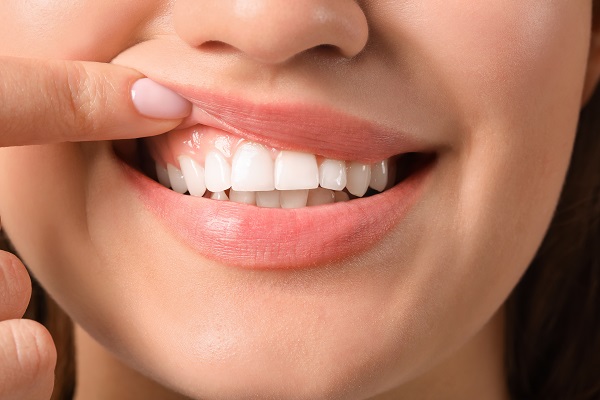What Can Happen With Untreated TMJ

Temporomandibular Joint Disorder, more commonly known as TMJ or TMD, is a condition caused by inflammation of the joint that allows the jaw to hinge or its surrounding muscle, attributed to natural causes or a point of impact such as whiplash. Whether the reason is natural over time or due to sudden impact, it’s important to treat proactively to ensure that the issues do not compound. When left untreated, this disorder can lead to a variety of invasive joint replacement procedures. Plus, it could lead to a significant amount of discomfort or pain that could impact everyday function.
Natural occurrences of this disorder are typically due to bruxism, which is grinding of the teeth that puts tremendous pressure on the joints, arthritis, or stress that maximizes jaw clenching. It can also occur due to a misaligned bite which causes additional issues with stress, clenching and grinding.
Luckily, there are many at-home treatments, such as eating soft foods and avoiding hard, chewy food items. There is also a wide range of exercises and stretches that people can repeat daily to strengthen and lengthen the muscles and ligaments surrounding the joints. The exercises may provide some relief for symtoms or may encourage people to stop grinding their teeth altogether.
If a patient suspects that they have this condition, then their next step is to talk to a dentist. We are happy to provide information for what patients should expect with this condition and why treatment is critical for overall oral health.
The importance of treatment
Like other oral conditions, a general dentist will be able to help diagnose the pain based on the patient's health history, pain history, and an examination of their jaw joints to determine if they could be suffering from this disorder. If an examination is not enough to gauge the extent of the condition, the dentist will also require x-rays, an MRI, or a CT.
While at-home treatments are easily accessible, it is important to take proactive steps to mitigate the pain and inflammation. If left untreated, at-home treatments may no longer provide sufficient relief, and patients may need to undergo a procedure that can range from minimally invasive to a partial or complete joint replacement requiring anesthesia and an overnight stay at the hospital.
In addition to the potential need for surgery, if left untreated, it can lead to issues that span beyond mild pain in the mouth, such as headaches and neck tension. This type of pain often interferes with everyday life, and as it worsens, it can lead to poor sleep as teeth grinding commonly leads to interrupted sleep.
At-home treatment options
Sometimes, people prefer simply solutions like at-home treatment options. If caught in time, many at-home treatment options will allow patients to combat the negative symptoms of TMJ. By strengthening and stretching the jaw, patients can help relax the tension both in the joint muscles and surrounding facial muscles. Practicing the movements as prescribed will strengthen the jaw over time to mitigate the issues. As previously mentioned, minding a diet will also help reduce pain; focus on eating soft foods and liquids while avoiding hard and chewy foods such as gum.
Along with pain and general discomfort, untreated issues linked to TMJ can contribute to premature wearing down of teeth and gums, which can ultimately lead to loss of teeth, gum, and jaw surgery. Like other conditions, if it is left untreated it can easily become a bigger (and more costly) issue. With a few small lifestyle changes and positive habits, patients can combat the symptoms and have relief.
While a dentist may be able to identify some telltale signs of TMJ, patients should also remain diligent in letting their dentist know if there are any changes to their mouth at all. It is also important to maintain a regular check-up schedule and go to appointments as requested by the dentist.
Speak with a dentist about TMJ
This condition can impact a person's life in many ways. It is especially true if the condition is left untreated for any period of time. If a patient suspects that they have TMJ, then their next step is to talk to a dentist about their options. While some people have absolutely no symptoms, sometimes TMJ is pinpointed by unexplained pain in the jaw or a popping sound while chewing or even talking. If a person notices such changes then they should reach out to their dentist right away for more information about a treatment option.
Request an appointment here: https://www.southerncalsmiles.com or call Southern Cal Smiles: Susan Fredericks, D.D.S, M.P.H. at (818) 657-8055 for an appointment in our Woodland Hills office.
Check out what others are saying about our dental services on Yelp: TMJ Dentist in Woodland Hills, CA.
Related Posts
Dental bonding is a multi-purpose procedure that provides patients with restorative and cosmetic benefits. Improving the way a person’s smile looks helps to increase their confidence, and restoring damaged teeth protects them against a wide range of dental and general issues.Repairing teeth with dental bonding does not require the dentist to make any permanent restorations…
One common, but potentially dangerous, dental issue is gum disease. This disease has three stages, and if it is caught early enough, it can be prevented from getting worse. Once it reaches the advanced stages, it is irreversible, and the treatment methods can be intense. If you suspect you may have gum disease, it is…
Dental bonding is a non-invasive treatment that has cosmetic and therapeutic uses. It involves applying composite resin – made with mixtures of plastic and glass – to the patient’s tooth. These composites can be shaped and molded as desired, allowing the dentist to address issues like decay or damage to a tooth. Composite resins can…
As you age, your body changes in all different types of ways, including your teeth, and the prospect of searching out geriatric dentistry will become essential. Aging is a natural process that no one can escape, and we are always searching for ways to slow the process down, prevent certain things from happening and keep…


